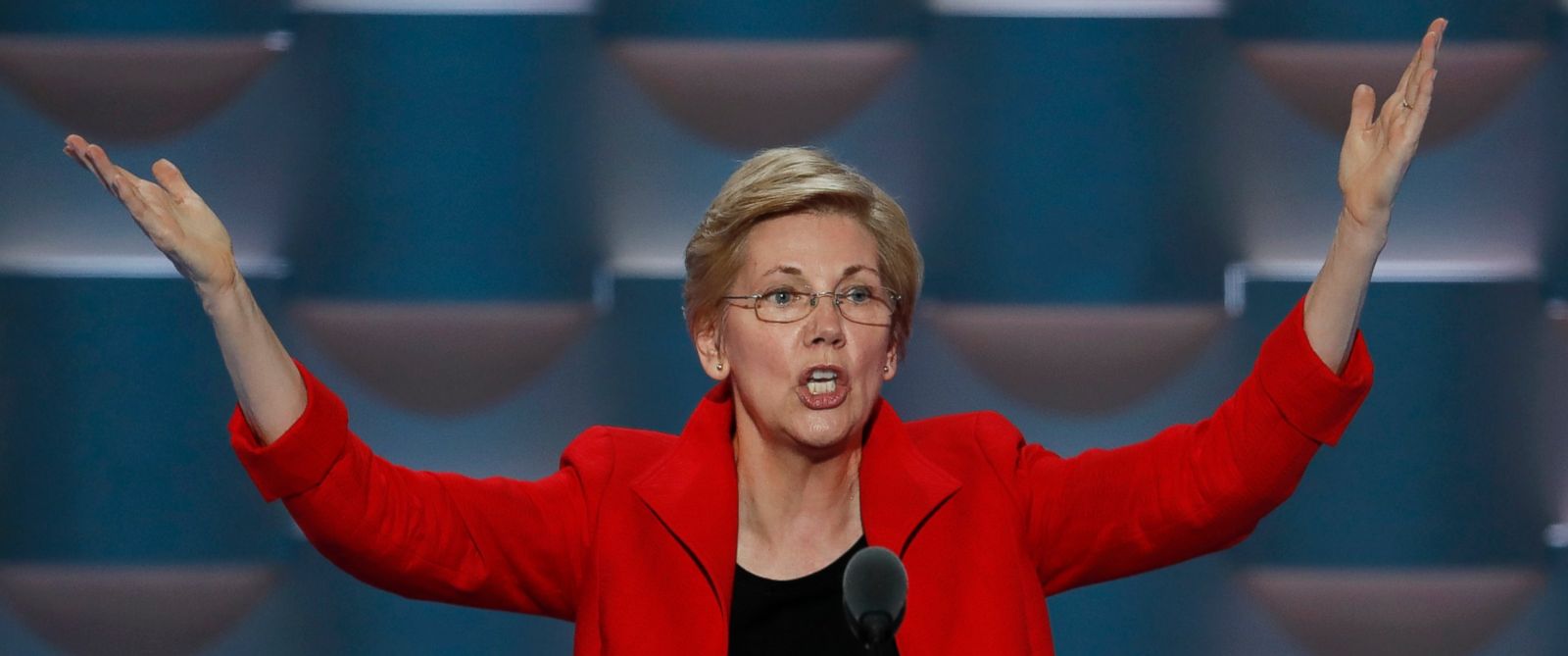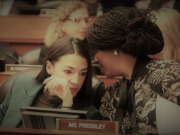In their recent Washington Post op-ed, Senators Elizabeth Warren (D-MA) and Sheldon Whitehouse (D-RI) shower praise on the continuing efforts by Democratic attorneys general to criminalize speech they disagree with by investigating Exxon’s alleged climate change skepticism. But the main subject of the Senators’ ire was Congressional Republicans’ attempt to fight back against this egregious abuse of power.
The Senators targeted two Republicans in particular. First was Chairman Lamar Smith (R-TX) of the House Science, Space, and Technology Committee, who issued counter-subpoenas to the AGs for materials relating to their investigations, including their communications with groups that advocate for policies to mitigate the impact of climate change. The second was Chairman Jim Inhofe (R-OK) of the Senate Environment and Public Works Committee, who criticized the Exxon investigations as a “misuse of power” and “politics at its worst.” Senators Warren and Whitehouse selected these two Chairmen because of their powerful positions in Congress, but also because, by opposing the Exxon investigations, they apparently, “appear to operate at the behest of the industries they are meant to oversee.”
Their primary evidence of this accusation? Donations from the oil and gas industry. The Senators assert that Congressman Smith’s $685,000 and Senator Inhofe’s $1.8 million in contributions from that sector since 1989 are evidence that they have been bought and paid for. Their opposition to the Exxon investigation could not possibly be genuine – their motives are simply to preserve their grasp on power by selling their congressional authority to the highest bidder.
This is simply nonsense. Such arguments betray a major misunderstanding of how industry donations are tallied – one that would not be expected from lawmakers who have a great deal of experience with campaign finance regulations. Then again, it is always easier to cherry pick facts and argue that an opponent’s motives are corrupt while maintaining that one’s own are entirely pure.
First of all, these donations amount to a tiny percentage of the contributions that those Republicans had received since 1989. According to the Center for Responsive Politics (the same source Senators Warren and Whitehouse used), Congressman Smith has received roughly $13 million in that time, of which only 5.1% has come from the oil and gas industry. Senator Inhofe received $21 million, with 8.8% coming from the oil and gas sector.
[table id=1 /]
Furthermore, it is misleading to simply look at total contributions by industry. Saying that the “oil and gas industry” contributed X dollars makes it sound like donations from plutocratic business leaders, or even direct contributions from companies themselves (which are illegal).
In fact, about half of those donations come from individuals working within that sector. Out of the $685,000 Congressman Smith has received since 1989, $365,000 came from individuals while $320,000 came from industry PACs. Of Senator Inhofe’s $1.8 million, $960,000 came from individuals and $880,000 came from PACs. Do Senators Warren and Whitehouse think that these individuals are bribing the Chairmen? Or that certain donors are less legitimate because of where they work? And is it any surprise that those employed in the oil and gas industry would rather donate to politicians who are not investigating and demonizing their employer?
There are other considerations – such as the fact that the energy sector is dominant in the Texas and Oklahoma economies – that undercut the Senators’ corruption argument. But for the sake of demonstrating how easy it is to spin a lawmaker’s campaign contributions, let’s give Senators Warren and Whitehouse the same treatment using data again from the Center for Responsive Politics.
The Senators clearly support investigations against Exxon that could lead to lawsuits. Their political opponents could easily argue that this is because of financial influence from the legal sector. After all, Senator Whitehouse received $1.7 million from lawyers and law firms since 2005, which amounts to 14.1% of his $12.3 million total. Senator Warren received $2.3 million from that same group just since 2011. Out of the whopping $50 million she raised in that time, contributions from lawyers and law firms amount to 4.6% of her fundraising haul.
[table id=3 /]
Not only are these absolute amounts and percentages comparable to – or, in Whitehouse’s case, even larger than – Smith and Inhofe’s contributions from the oil and gas industry, they also occur over a much shorter time frame. Using the Senators’ same logic, Warren and Whitehouse must be doing the bidding of big law firms who would benefit from more litigation.
Defenders of the Democratic Senators will find reason to say that this analysis is totally unfair – and that’s exactly the point. Rather than selectively accusing politicians of being corrupted by their campaign contributions, it is much more reasonable to assume that donors give to those whose political beliefs overlap with their best interests. If Senator Warren had run for Senate in Texas she might not have received many contributions from the oil and gas industry – but she likely would not have sought out such donations anyway.
In short, Senators Warren and Whitehouse’s analysis is lazy, misleading, and perpetuates harmful misconceptions about the rationale behind those who give campaign contributions, existing campaign finance laws, and the importance of free political speech.














